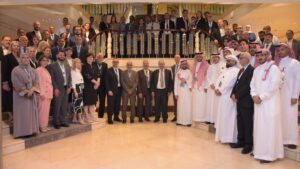On 25-26 September 2023, United for Efficiency (U4E) was pleased to take part in the first of a new series of Twinning Workshops, convened by UNEP OzonAction and funded through the Montreal Protocol’s OzonAction Compliance Assistance Programme, which will continue across the regions into 2024.
 The Joint Europe, Central Asia and West Asia Twinning Workshop for Montreal Protocol Officers, National Energy-Efficiency Policymakers and Financial Mechanism Focal Points, built on the success of the OzonAction & U4E Twinning Workshops that were carried out in 2018 and 2019 with funding from the Kigali Cooling Efficiency Program (now called the Clean Cooling Collaborative).
The Joint Europe, Central Asia and West Asia Twinning Workshop for Montreal Protocol Officers, National Energy-Efficiency Policymakers and Financial Mechanism Focal Points, built on the success of the OzonAction & U4E Twinning Workshops that were carried out in 2018 and 2019 with funding from the Kigali Cooling Efficiency Program (now called the Clean Cooling Collaborative).
These workshops were developed based on the rationale that the Kigali Amendment to the Montreal Protocol on Substances that Deplete the Ozone Layer will help protect the climate by phasing down high global warming potential hydrofluorocarbons (HFCs), which are commonly used as refrigerants, and that promoting the energy efficiency of air conditioning and refrigeration technology and alternative cooling solutions can significantly increase those climate co-benefits.
The workshops’ objective was to facilitate the twinning of National Ozone Officers and energy policymakers for energy efficient and climate friendly cooling and support policymakers to unlock these multiple co-benefits by working together on policies to transition to climate-friendly refrigerants under the framework of the Kigali Amendment to the Montreal Protocol while promoting the energy efficiency of air conditioning and refrigeration technology and alternative cooling solutions. In total, the 2018 and 2019 workshops engaged 160 national energy policymakers and 261 National Ozone Officers from more than 140 countries.
The workshops used an interactive, participatory approach, that included different session formats, a mix of presentation types, theoretical content as well as practical demonstrations, plenary discussions, regional group breakouts and a set of participant exercises, to guide and facilitate a dialogue between the national counterparts.
The first phase of workshops in 2018 included sessions that provided an introduction to energy efficiency for National Ozone Officers and an introduction to refrigerants for energy policymakers, a technology overview and live equipment demonstration, policy overview for transforming cooling markets, developing National Cooling Plans, guidance for identifying resources for implementation and regional collaboration. Several tools were shared to support their further efforts such as the U4E’s policy guides, Accelerating the Global Adoption of Energy-Efficient Air Conditioners, and Accelerating the Global Adoption of Energy-Efficient and Climate-Friendly Refrigerators, and the ASHRAE-OzonAction Refrigerants Factsheet.
The follow-on phase of workshops in 2019, focussed on action-taking and project development and built on the relationships between the ozone and energy communities established or strengthened during the 2018 sessions and on the national and regional opportunities identified by the participants. Sessions delivered by more than 30 international experts from multiple organisations included discussions on regional policy alignment on adoption of harmonised policies, using market monitoring tools such as product registration systems, capacity building on processing old equipment, leveraging funding and financing, lessons learned from deploying energy-efficient and clean cooling technology, communications, advocacy and fostering national alignment via national cooling plans. Several U4E tools were shared such as the model regulations for air conditioner and refrigerators, the updated U4E Country Savings Assessments and product registration system guidance notes.
Follow up to these workshops indicated that 73 national Ozone Officers and national energy officers had started to consider HFC phase down in their energy efficiency policies and 70 have already engaged their counterpart for cooperation regarding energy and/or refrigerant transition strategies.
Against this positive background, this first workshop in the planned series for 2023 and 2024 provided the template for the forthcoming workshops. It revisited and expanded on these topics and tools and provided an update on national and regional policies for these products. It also added a financial mechanism focus by including representatives such as the national focal points for the Green Climate Fund (GCF) and/or Global Environment Fund (GEF) with aim that funded projects are developed.
The main objectives of the 2023-24 workshops are to:
- Facilitate and support the national policy direction and development planning with regards to the energy-efficiency of the cooling sector at the national level.
- Follow up on and continue the results of previous twinning workshops and identify good examples that can be shared with other countries in the region.
- Share experiences and success stories of countries, bilateral and implementing agencies, and other partners with implementing projects in building and cooling sectors.
- Explore synergies between the Multilateral Fund and the Green Climate Fund (GCF)/Global Environment Fund (GEF) in providing assistance in the building sector and energy efficiency in different applications, including RAC and the foam sector.
- Establish better communication between relevant stakeholders and coordination of ongoing projects to explore synergies and prevent/avoid overlaps in the cooling sector at the national level.
- Enable better coordination between the National Ozone/Montreal Protocol Officers and other government stakeholders involved in the adoption of new refrigeration & air conditioning (RAC) equipment that are both energy efficient and employ lower GWP refrigerants. The knowledge gained through the capacity building will ensure that capacity is retained in the Government agencies as well as in relevant sectoral/line ministries.
- Facilitate inclusion of energy efficiency aspects in the Multilateral Fund supported projects – the twinning workshop will provide a platform for NOOs/MPOs to brainstorm with their NEEPs and FMFPs on the ways to include energy efficiency considerations in the HCFC Phase-out Management Plans (HPMPs) and future KIPs.
- Capacity building for the respective counterparts.
For further information on the workshop, contact Patrick Blake at patrick.blake@un.org, or visit the OzonAction Meeting portal where all the materials from the workshop are available, along with the workshop report.
For more information on the 2018/2019 workshops, see the Twinning of National Ozone Officers and Energy Policymakers factsheet on the OzonAction website.
To hear about the lessons learned from the workshops in the words of the participants themselves, you can view the short videos on the Cool Coalition YouTube Channel from the National Ozone Officers of Bahrain, Philippines, Samoa, Armenia, and Zimbabwe.


Leave a Reply